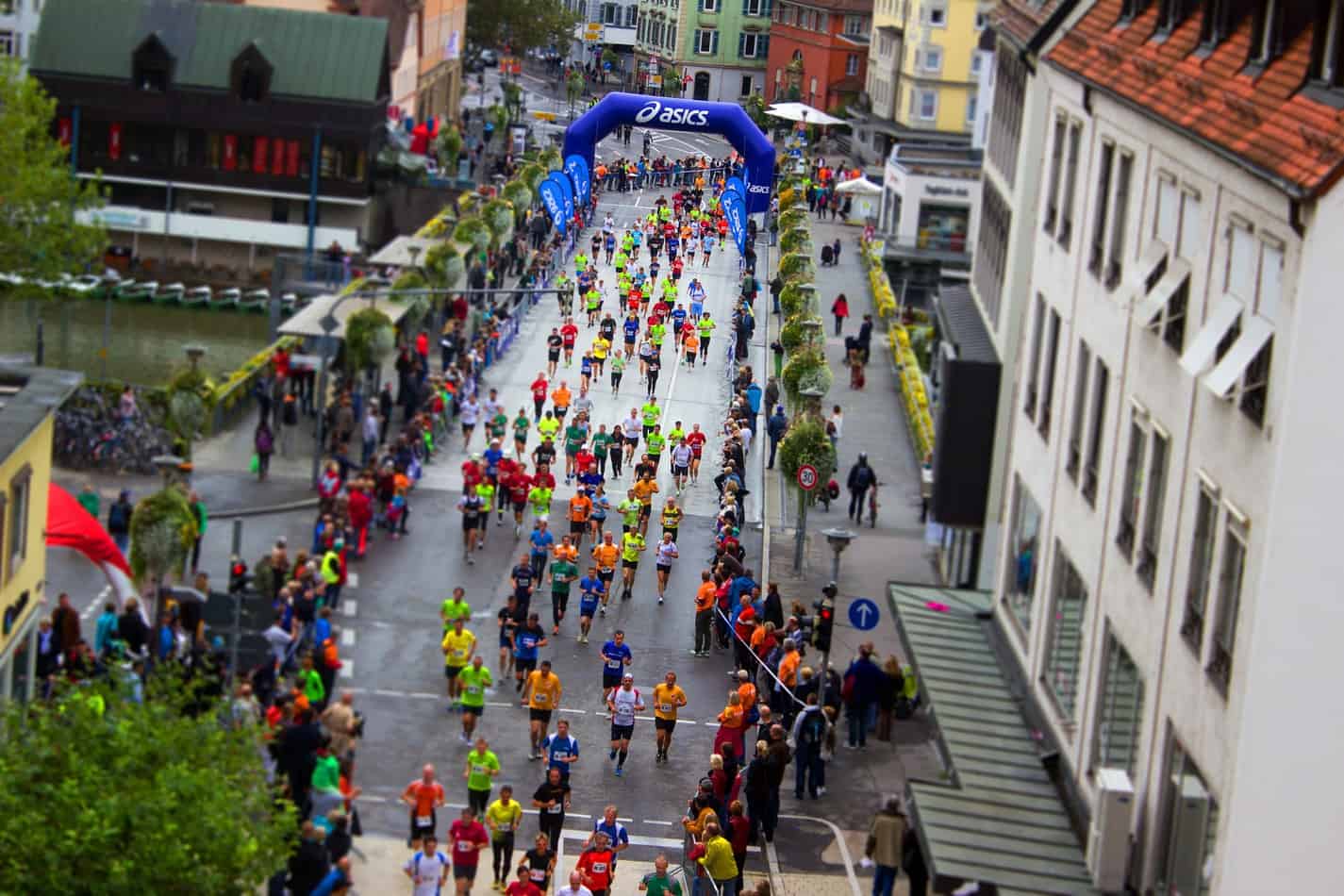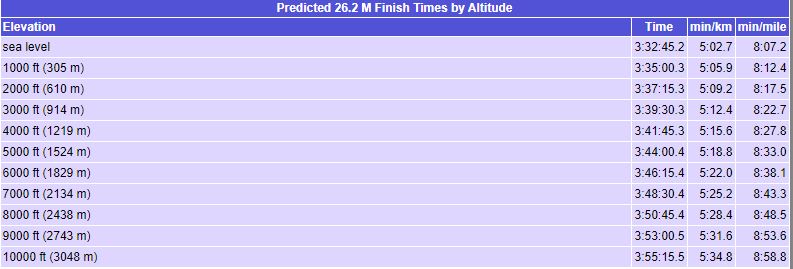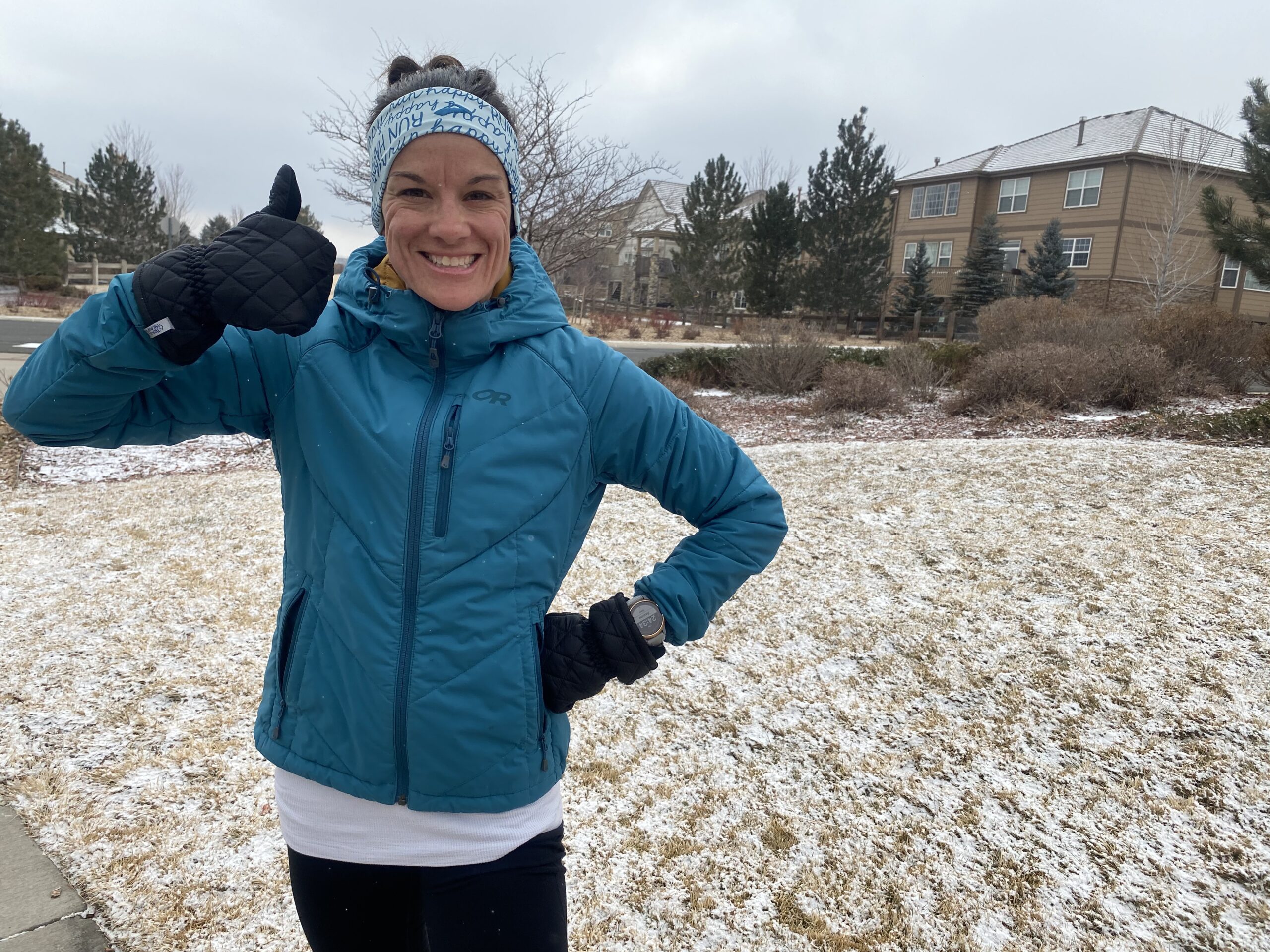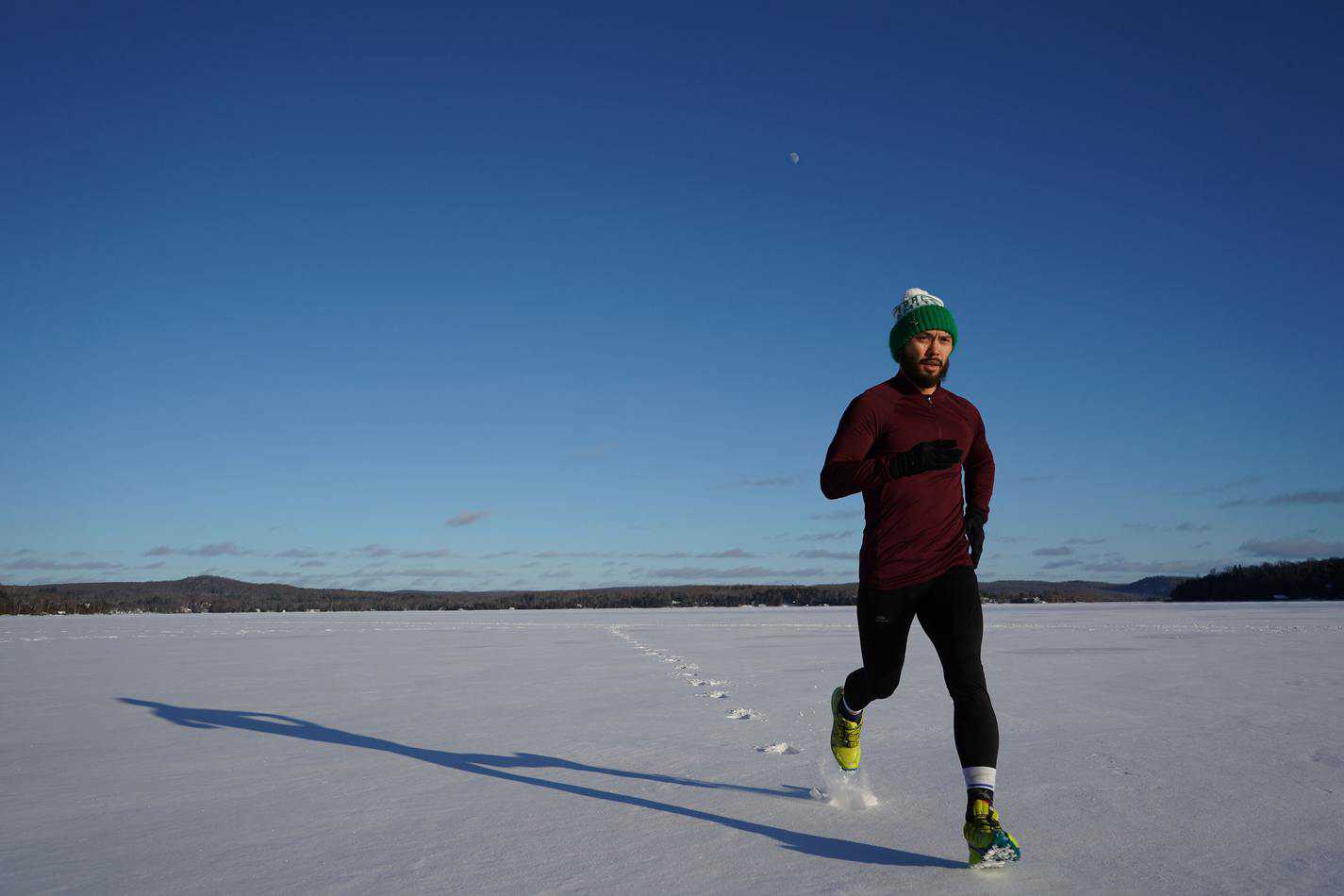Most non-runners don’t even know how long a marathon is let alone how long it takes to run one. Once I tell them it takes a few (or several) hours, they usually look at me like I’m crazy and say they could never do that. But, I believe almost anyone can run a marathon which I wrote about here. Some will be faster, some will be slower, and most people will finish in a time somewhere in the middle.
Most recreational runners will complete a marathon between 4 and 5 hours, with an average finishing time of 4.5 hours, according to RunRepeat. The average male finish time is about 4:21 and for women it’s 4:49. There is a vast difference between the time it takes the fastest marathon runner to complete a marathon (around 2 hours) and a slower runner completing those same 26.2 miles (6+ hours).
There are a lot of factors that go into determining how long it will take a person to run a marathon. Some of what matters include:
- How much training the runner has had
- A runner’s age and gender
- Where the marathon is being run
Only a tiny fraction of the population have ever run a marathon under 3 hours. That means almost every human will take longer than 3 hours to run a full marathon. Even running a marathon in under 4 hours doesn’t happen for most runners. But, it’s much more attainable with proper training. Which is the number one factor in determining how long it’s going to take someone to run a marathon.
If you’re ultimately looking for a good gauge on how long it will take you to run a full marathon based on your own running abilities, I’ll cover that, too.
How Training Determines How Long it Takes to Run a Full Marathon
Training will make a night and day difference between how fast someone can get through a marathon. Which is why I highly recommend getting your hands on a book like “You, Only Faster” by Greg McMillan or “Daniels’ Running Formula” by Jack Daniels (a couple of pros in the biz) so you know what you’re doing.
I’ll use myself as an example to show how a marathon time can change drastically when you actually train properly.
In 2005 at the age of 25 years old I ran my first marathon in 4 hours 59 minutes. I wanted to run a marathon, but honestly I was overwhelmed by the amount of mileage it actually took to train for it. So, I did the bare minimum. I figured as long as I did all of my long runs and got in a couple of short runs in during the week I’d be fine. I mean, I DID finish the marathon but certainly not in a time that I was capable of. Walking took up the majority of my last 6 miles which is not what I had hoped for. But hoping doesn’t help you when you haven’t trained right.
Fast forward to 2018. At 38 years old I ran my fastest marathon time in just under 3 hours 36 minutes. I followed a 5-6 day per week running plan and did almost every single run on that plan to a T. I did a lot of speedwork and my highest mileage week was around 52 miles.

Ultimately, most people are probably not running enough miles to get the time they want in a marathon. So, if someone is training less than 40 miles per week at the peak of their training, their marathon time will likely be significantly slower than had they put in upwards of 50 miles per week. I’m not saying this in a negative way, just that there is a lot of evidence to show that running more miles in training (and safely building to that mileage) pays off for a faster marathon time. Read my article, Want to be prepared for your marathon? Run More Miles to understand more about why this is true.
RELATED: How to Run a Marathon in 4 Hours: Top 7 Tips
Training is one factor in why there can be such a big difference between the time it takes one person to finish a full marathon to another.
Need a marathon training plan? I cover the most popular training plans in: “Top Marathon Training Plans: The Basics You Need to Know.”
Why Age and Gender Play a Role in Your Marathon Time
As is true with most other sports, age and gender will make a difference in how long it takes to run a marathon.
Let’s talk about how gender affects marathon times.
When people wonder what the average time is that it takes to run a marathon, they may not consider how different that average is depending on if it’s a man or a woman. Men usually have more of a natural ability to be faster than women.
According to 2018 data from RunRepeat, the average male marathon finish time is about 4 hours and 21 minutes. The average female marathon finish time is nearly 4 hours 49 minutes. And the difference between the male and female world record holders in the marathon is about 14 minutes.
This is not to say that women aren’t capable of being faster marathon runners than a lot of men. In my most recent marathon, the Long View Marathon in Fort Collins, CO, I placed 32nd out 262 total runners. Which means I beat a lot of male runners. And there are many women out there much faster than me. This just means that if everything else were essentially the same, men have a strength and height advantage over women that often allows them to be faster.
Age matters, too, when it comes to how fast you can run a marathon.
This is why you’ll see awards given by age group categories (also divided by male and female). Most elite runners reach their peak during their mid-30s, according to this article from the Washington Post. What’s fascinating is that this same research shows that recreational runners (you and me) may have the ability to continue improving to age 50! How could this possibly be?
Well if we go back to my 4:59 marathon as a 25-year-old and a 3:36 as a 38-year-old…training made the difference. Even though I probably missed my peak fitness time somewhere in between those two ages, and likely would’ve hit my personal record had I pushed my physiological limits, I never did. So even though a person’s genetic capability may decline after that mid-30s mark, they’ll still hit personal bests because they’re actually doing the training it takes to get a great marathon time. Which circles back to how much mileage and focused training matters.
Pro Tip: If you’re currently in your late 20s to mid 30s, you are likely at your peak ability to run your fastest marathon. Train properly, work hard, and get experience, and you can achieve the best marathon time in your life.
But if we’re comparing 20-somethings to 70-somethings, and all the ages in between, you’re going to see average times slow for each decade. Average marathon times stay fairly similar up to age 49, and decline pretty rapidly after that. Though a 4-to-4.5 hour marathon is common between the ages of 20-49, it is much less likely achieved after the age of 60. But runners at that age can certainly still run marathons! They are just more commonly complete in the 5-6-hour range.
Want to be a lifelong runner? Find out how by reading: “Masters Marathon Training: Running Your Best in Your 40s, 50s, 60s and Beyond.”

How Your Marathon Course Affects Your Finish Time
For those who aren’t as familiar with running and racecourses, a marathon seems like it should be about the same no matter where you run it. It’s true that the marathon will always be 26.2 miles no matter what (and if you want to know why, read this interesting article about it.) However, altitude and elevation changes can drastically change how long it takes someone to finish a marathon.
Let’s look at how altitude affects race times first:
If you run a marathon at sea level, your time will be significantly faster than if you run one (even trained exactly the same) in the Mile-High City at 5,280 feet above sea level. How much different, you ask?
According to this Run Works calculator, my most recent marathon time of 3 hours 44 minutes I ran at around 5,000 roughly equates to a 3 hour 33 minute marathon time at sea level. I better find myself some sea level marathons stat!
I’d be very interested to test out the accuracy of this calculator as that is a significant difference! According to this study, “the time taken to complete a marathon strongly depends on the altitude of the city in which the marathon is held. Selecting marathon competitions close to 0 m above sea level is a good strategy to maximize marathon performance.” In my article, Marathons at Sea Level: Are they worth it? I discuss why altitude makes such a big difference in marathon race time.
Here’s how elevation change makes a big difference in race times:
I got my first real taste of how much elevation change matters when I ran a half marathon in the foothills outside of Phoenix. I had trained to run my half marathon at a pace of around 8:15s and I felt very prepared to accomplish that, if not faster. Ultimately, I ran closer to an 8:30 pace. My husband and I had not researched how hilly the course would be. Come to find out, the race had over 1,000 feet of elevation gain in 13.1 miles. That’s significant! That would even be a lot spread out among a marathon. So, the more elevation gain a marathon has, the slower the average marathon times will be. Most marathons list their course profile on their website and disclose the amount of elevation gain. Just because a race starts and ends at the same spot does not mean it’s flat!
Pro Tip: Always check the course profile and elevation of a marathon before you choose that as your marathon race of choice! Close to sea level and flat or downhill usually equate to a faster time.
The flip side of this is if you run a downhill marathon (I recommend my favorites here). Many runners (myself included) look to downhill marathons to get a PR or qualify for Boston. These are USATF certified courses and are completely legitimate (no matter what anyone tries to say about it). But yes, they will be faster. However, for many of these types of races, you’ll be starting at a very high elevation. So, if your body is not acclimated to that type of altitude, it could backfire – ultimately giving you a slower time.
So remember that when you’re trying to determine how long it will take you to run a marathon, altitude and elevation changes will affect your time.
View this post on Instagram
Predicting Your Personal Full Marathon Finish Time
At this point we’ve talked about how training, age, gender, and a particular racecourse can all affect how long it takes someone to run a marathon. It can really fall anywhere between 2.5 – 6 hours for a recreational runner. That’s quite the range. So, what you probably want to know is how long it’s going to take YOU to run a marathon.
In order to figure out what you’re capable of, you’ll need to have a couple of recent race times available. If you don’t have that, I would highly suggest getting trained properly for a 5k and running it to the best of your ability. Then do the same with a 10k. But “trained properly” are the keywords here. Mcmillan Running has some great 5k and 10k training plans to follow.
Once you have your 5k and 10k times established and you’re confident you’ve trained well to achieve those times, you can figure out the kind of marathon time you can expect to get.
Don’t want to race or have a recent race time? You can also do a 2-mile Time Trial on your own to get a predicted marathon time. I explain why time trials are important and what to do with your time after you’ve completed it in this article.
Below is Jack Daniels’ VDOT Running Calculator. It works by using one of your past times in a particular distance to predict your marathon finish time. Even with a short race, it can predict the marathon time you’re capable of doing with the proper training. In order to see your predicted time, click on “Equivalent.”
I love using these calculators just to get a sense of my fitness and for creating race goals for myself. But keep in mind that these predictors don’t mean that you will run that marathon time tomorrow without the proper training.
When I look at my marathon goal time it spits out, I know that I would need 18 – 20 weeks of focused marathon training to achieve that time – so keep that in mind! For more on that, read “How Many Weeks to Train for a Marathon – and Great Plans to Use.”
When my husband and I started using these time predictors and we saw the times it was predicting for us to run a marathon we both thought there.is.no.way. But guess what happens when you complete 18 weeks of focused, consistent, proven training running lots and lots of miles? You can turn your predicted marathon time into a reality. It may not happen on your first try, but if you keep with it and gain experience running the marathon distance, you can do it!
So when people ask me, “How long does it take to run a full marathon?” it’s clearly not a simple question to answer! I could tell you it ranges from 2-6 hours, and averages around 4.5 hours. But if you’re interested in running your own marathon, I would highly recommend getting your own finish time predicted. Then, put your heart into your training to achieve that time, and go for it. That way you’ll know exactly how long it takes to run a marathon.
Related FAQ
Is 3 hours a good marathon time?
Finishing a marathon in 3 hours or less puts you in the very top tier of marathon runners. According to Livestrong.com, to rank among the top 1%, you’d need a finish time under 2 hours and 49 minutes. Even the top 10% of runners are finishing under 3 hours 24 minutes. Remember that these statistics combine both men and women, so a woman finishing under 3 hours is even more rare. If you follow a lot of fast runners on Instagram, this number will seem much higher (but it’s not) – so it’s good to have a reality check.
Is 5 hours a good marathon time?
Any finishing time is a good marathon time in my book! Marathons are an incredibly tough challenge. Though 5 hours is a bit slower than the average of around 4.5 hours, there are still many runners who take longer than 5 hours to complete one. Additionally, most people don’t run one at all, so you should be proud of any time you get when you cross that finish line.
RELATED: What is a Good Marathon Time and Who Decides?
How long does it take to walk a marathon?
If you walk at a pace of 16-minute miles, you can finish a marathon in just under 7 hours. That’s a moderate walking pace of 3.75 miles per hour, so you may decide to walk a bit slower or a bit faster, making your marathon time closer to 6.5 or 7.5 hours. Every year thousands of runners walk a marathon and that’s a huge accomplishment!








